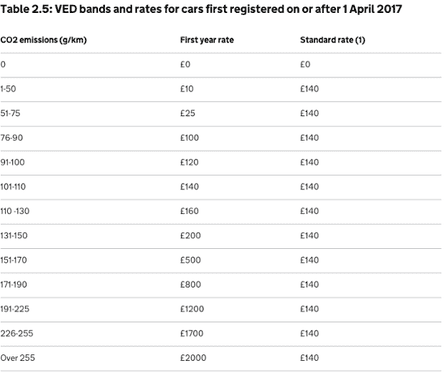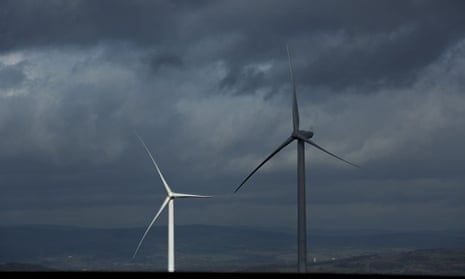Amber Rudd has been accused of “grotesque hypocrisy” today for claiming the government is leading on climate change while overseeing a string of attacks on green policies. Some environmentalists say it’s the worst period for environmental policy in three decades.
We’ve rounded up the green measures that have been axed or find themselves in the firing line, to show the breadth and scale of the changes.
Scrapping support for onshore wind
Amber Rudd, the energy and climate change secretary said she was halting new subsidies to onshore wind farms on the grounds that the technology should stand on its own feet and save bill payers money.
In fact the writing had been on the wall for onshore wind farms since February 2012 when 101 backbench Conservative party MPs wrote to David Cameron demanding “dramatic cuts” in subsidies.
A moratorium on more onshore wind was rejected by the Tories’ coalition partners, particularly the Lib Dem energy and climate change secretary, Ed Davey. But the Conservatives went into the election promising to “halt the spread of onshore wind farms”.
Ironically onshore wind has attracted a lot of investment and can be the most cost-efficient way of producing low carbon energy.
Solar subsidies to be axed too
Ministers have targeted larger solar installations of less than five megawatts – enough to power 2,500 homes – in a consultation on the early closure of the renewable obligation (RO) subsidy aimed at April 2016.
But the government also announced a review of another subsidy, the feed-in tariff, to make further significant savings in a move that could threaten state support for solar panels on domestic roof tops.
The solar power sector has grown dramatically over the past 18 months, leading ministers to panic about a forthcoming potential budget overspend on support schemes of £1.5bn by 2020. It later admitted the benefit of scrapping support for this nascent industry at this stage would only save energy consumers 50p a year.
Biomass hit too
The government also confirmed this week that it was removing the guaranteed level of RO subsidy for coal or other fossil fuelled-power stations which are converting to wood or another biomass fuel.
Killing the flagship green homes scheme
On Thursday, the government effectively killed off the green deal, its “transformational” way of helping homeowners bring down their energy bills through installing insulation, and fitting new boilers and draught-proofing. Few will mourn the scheme, which provided loans to homeowners to fund the measures – but as the Guardian reported many times, take-up was very low.
But what’s striking is Rudd has nothing to replace it with. So, apart from poorer households, who get support through the separate ECO scheme, there is now no serious energy efficiency policy for homes, which account for around a third of UK carbon emissions. A review of all remaining energy efficiency schemes is currently underway with details expected in the autumn budget.
Selling off the green investment bank
Launched in 2012 to help green projects with an initial injection of £3.8bn of public money, the green investment bank is probably the example cited most often by George Osborne and David Cameron in their defence of the government’s environmental record. But last month the business secretary, Sajid Javid, said he would be selling off as much as 70% of the bank.
Whether that harms the energy efficiency, waste and offshore wind power projects that the bank invests in remains to be seen. But even the influential Tory thinktank Bright Blue was unimpressed by the move, saying it was the “last thing we need”.
Watering down the incentive to buy a greener car
The summer budget ripped up the current system of taxation for new cars (vehicle excise duty, often erroneously referred to as road tax). Anyone who currently buys a new car pays a different rate for the first year based on how polluting the car is, a system which continues every year thereafter, ranging from free for electric cars to £505 for the dirtiest.
But from 2017, after the first year, all cars will pay the same £140 annual fee, so a Porsche will be taxed the same as a Prius. The car industry says the change takes away the incentive to buy a low-emissions car, while Friends of the Earth says a greener car will now cost £1,000 more over seven years.

Giving up on zero carbon homes
A decade-long plan to force all new homes to be ‘zero carbon’ from 2016 was binned by the Treasury earlier this month, prompting the former Lib Dem energy secretary Ed Davey to say David Cameron “may as well hug a coal power station”. Major housing developers said the decision was “extremely disappointing”, a view that was echoed by planners, green groups and the designer of a new ‘carbon positive’ house that just opened in Wales.
Conservatives ditch Zero Carbon standards for new homes after killing onshore wind: Cameron may as well hug a coal power station
— Edward Davey (@EdwardJDavey) July 10, 2015
Fracking in Britain’s most important nature sites
Rudd said in January that fracking wouldn’t be allowed in sites of special scientific interest (SSSIs). Last week she changed her mind, opening the door to fracking in thousands of SSSIs in England, Wales and Scotland, if the shale companies can get past planners. Green party MP, Caroline Lucas, said the u-turn was outrageous.
Goodbye green tax target
A target set during the last government to keep increasing the proportion of revenue from environmental taxes was dropped in Osborne’s emergency budget.
This article includes content hosted on d26adhsj11a4c2.cloudfront.net. We ask for your permission before anything is loaded, as the provider may be using cookies and other technologies. To view this content, click 'Allow and continue'.
Tidal power in the firing line?
There has already been speculation that one talismanic project, the Swansea Bay Tidal Lagoon, currently awaiting a subsidy offer from the Treasury, could be being lined up for the chop.
This £1bn scheme is expensive but was name-checked positively by chancellor George Osborne in the spring budget. Its supporters have always argued it would trigger a whole new industry that could lead to 30 similar projects starting around an island country perfectly suited for this low carbon technology.
What’s left – and safe?
Nuclear power certainly. The government – like its predecessors of all political stripes seem mesmerised by atomic power and are willing to provide extremely generous financial support and other help to kickstart a renaissance.
Britain’s first planned new nuclear plant for over 25 years at Hinkley Point in Somerset is backed by government but faces all sorts of other hurdles such as uncertain equity investors, legal challenges and ever-increasing costs and delays, which could scupper it yet.
Offshore wind, much more expensive than onshore farms, has so far escaped the axe although there are plenty of Tory critics willing to decry the cost and claim it is a blot on the seascape.
How long will this pioneering industry survive unscathed?

Comments (…)
Sign in or create your Guardian account to join the discussion